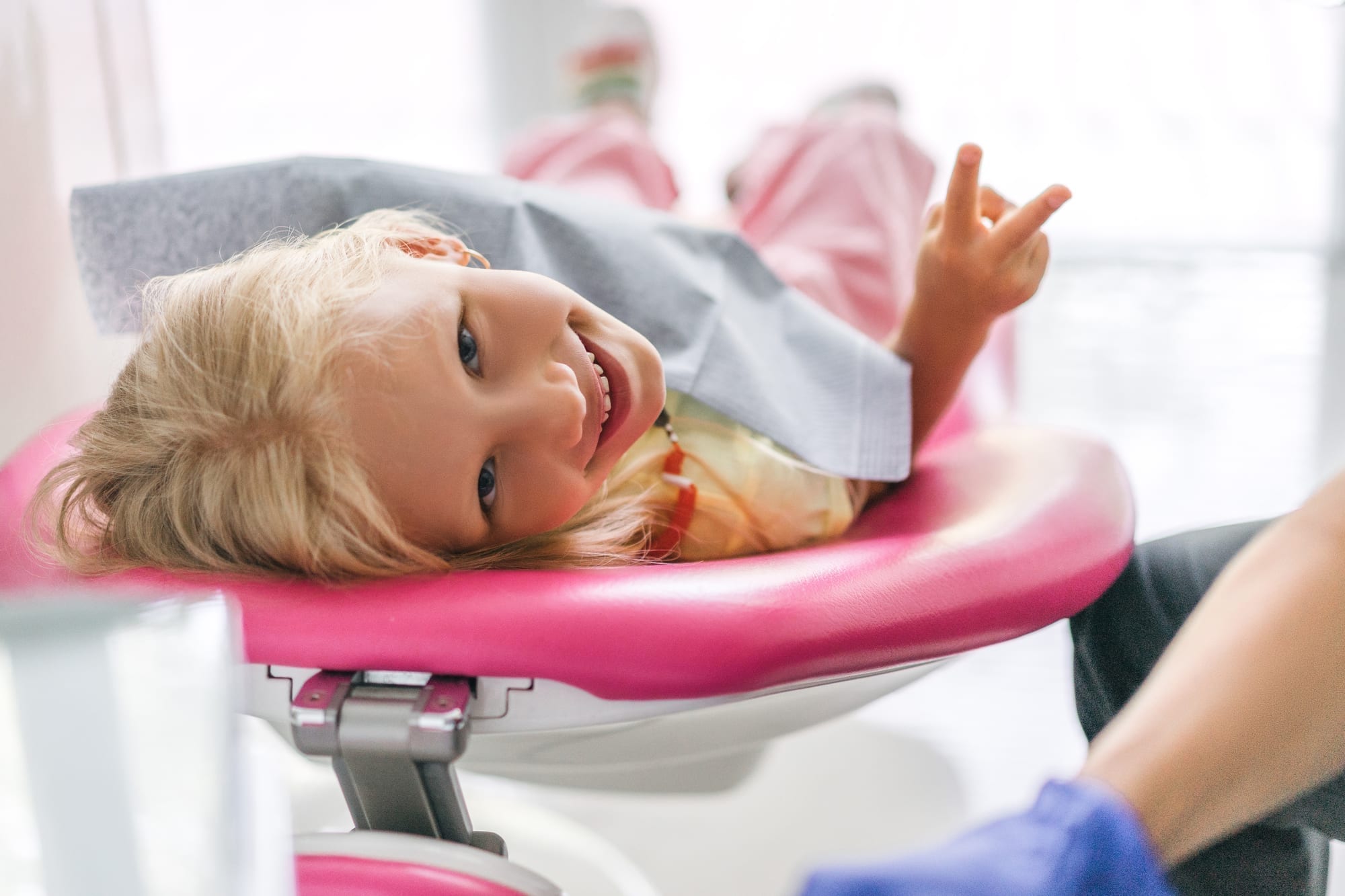Oral health is a factor that all parents must consider from the time that their little one is born. Yes, even before his or her teeth have erupted!
Baby Bottle Tooth Decay (aka Early Childhood Caries) mainly affects the upper front teeth but can have rippling effects throughout the mouth. Sugary drinks and milk turn into acid in the mouth when they encounter bacteria. This acid attacks the dental enamel and creates a cavity. If these drinks are paired with a meal, cavities are less likely. However, when children take a nap or go to bed for the night with a bottle in their mouths, Baby Bottle Tooth Decay is likely to occur.
Symptoms of Early Childhood Tooth Decay
Tooth decay in babies and toddlers can be especially difficult to detect. Presumably, your little one won’t be able to express in words what is wrong with his teeth. Here are a few symptoms of early childhood caries to look for:
- White spots on the teeth
- Light brown spots on the teeth
- Brown or black spots on the teeth
- Pain around the tooth
- Sensitivity to hot or cold drinks and sweet foods
If you notice any of these symptoms, contact a pediatric dentist near you as soon as possible.
How A Kid’s Dentist Treats Tooth Decay
When cavities first develop, and a baby has small white spots on her teeth, fluoride treatments may be able to reverse the decay by helping rebuild the dental enamel.
Darker spots on the teeth indicate more developed cavities that may require restorative treatments, such as fillings or dental crowns. Pediatric dentists make these procedures as comfortable and quick as possible. These are common dental treatments and should never be a source of anxiety for you or your little one!
Prepare your child for a dental crown with these helpful tips.
How To Prevent Early Childhood Caries
Prevention is always the best policy. There are several steps you can take to stop the development of Baby Bottle Tooth Decay in your child:
- Clean your child’s gums with a soft, damp cloth after a feeding.
- Don’t share eating utensils or straws that can transfer bacteria.
- After the teeth erupt, gently brush them twice a day with a soft-bristled toothbrush and a smudge of fluoride toothpaste.
- When two teeth erupt next to each other, floss between them daily.
- Avoid sending your little one to bed with a bottle in his mouth.
- Reduce the amount of juice and soft drinks your child drinks.
- Do not dip pacifiers in sugar or honey.
- Provide healthy, mouth-friendly meals and snacks.
Finally, be sure to schedule your child’s first dental visit by her first birthday or by the time her first tooth erupts (whichever comes first). These appointments give a pediatric dentist the chance to catch tooth decay in its earliest stages and offer tips for how to prevent more from developing.
During your child’s first visit, the dentist will mainly focus on reviewing you and your child’s dental and medical histories and evaluating his smile for oral health issues or developmental concerns.
When necessary, a dental assistant can clean and polish your little one’s teeth.
Call Smiles Dentistry for Kids Today
Our team at Smiles Dentistry for Kids is dedicated to reducing childhood tooth decay by offering high-quality, individualized oral health care in a comfortable environment. to schedule your child’s first visit with Dr. Matt, contact our Overland Park dental practice today at (913) 685-9990.









